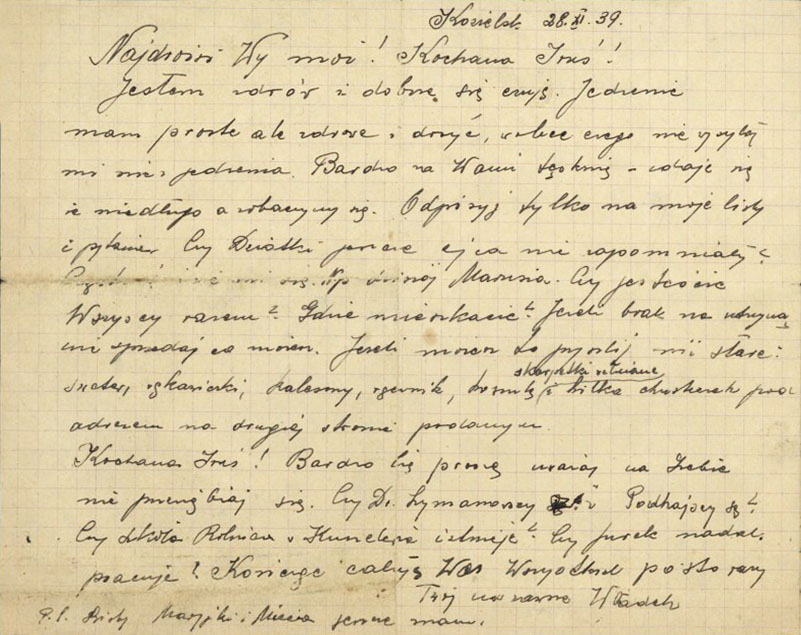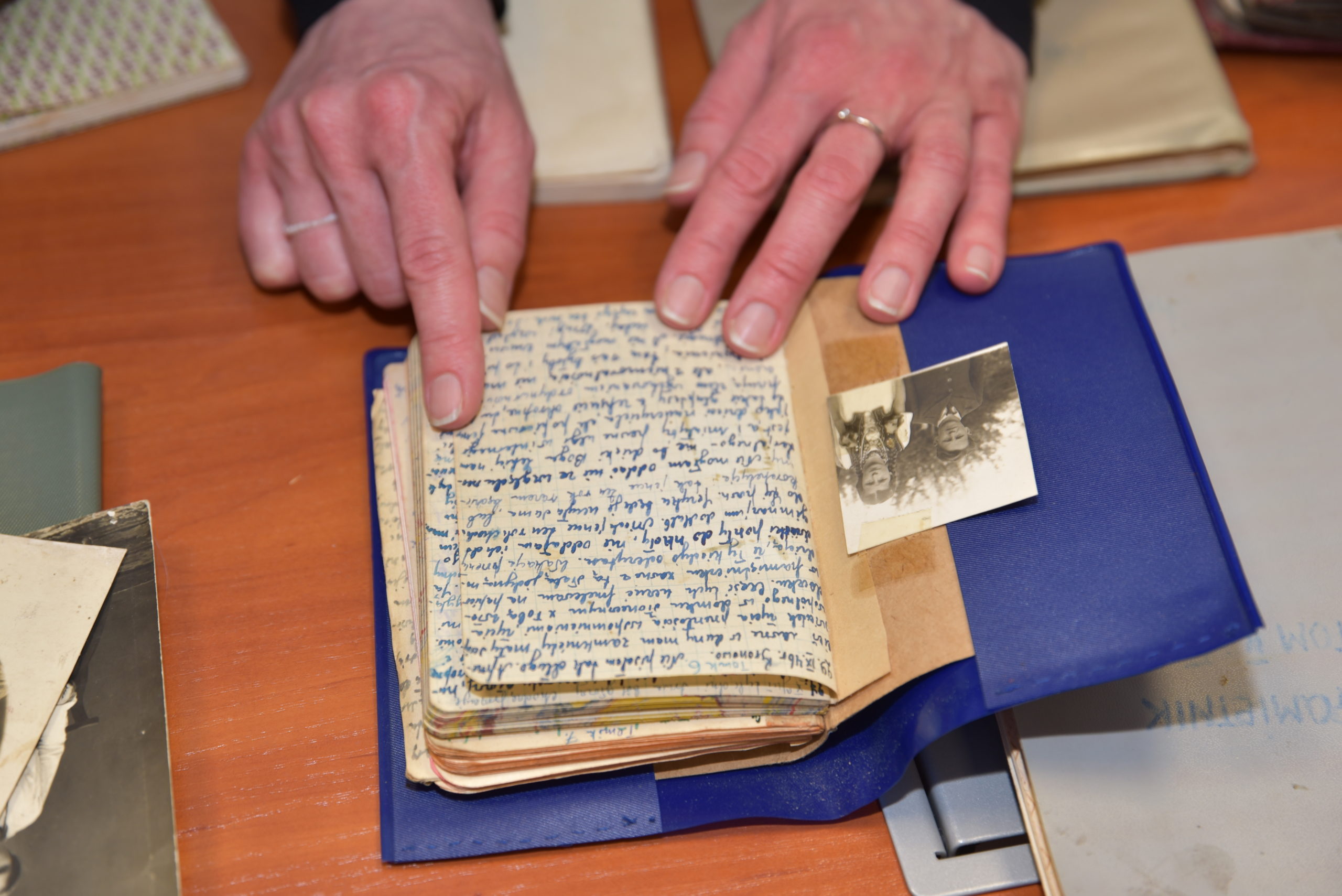Letters from Soviet Captivity
Category
Poles in POW Camps
Donated by
Wisława Osenkowska
Signature
IPN BU 4103

The first letter Władysław Walkowski sent to his wife, Irena Walkowska, from the NKVD POW camp in Kozielsk, 28 November 1939
A History of Walkowski Family
Władysław Antoni Walkowski was born on May 10, 1905 in Gwoździec Mały [Gvozdetz] in the Kołomyja [Horodenka] region [now part of Ukraine], the son of Mieczysław and Maria, neé Margnat, of a polonized Austrian family. In 1926, Władysław Walkowski graduated from the Teachers’ College in Stanisławów and six years later, from the Higher School of Agriculture in Cieszyn. He was an instructor in the agricultural school in Koszlewo near Nowogródek [now in Belarus]. He also completed military education. In 1927, he graduated from the Infantry Reserve Officer Cadet School No. 5 in Łobzowo. Around 1928, Władysław Walkowski, now in the rank of sergeant first class, was awarded a Commemorative Medal for the War 1918–1921. From January 1, 1932, he was a reserve second lieutenant.
It is worth noting that Władysław’s grandfather – Józef Walkowski – fought in the January Uprising of 1863. Władysław’s brother – Tadeusz Kazimierz – served in the Polish Legions [in World War I], the Polish Army, and the Polish Armed Forces, and was a lieutenant-colonel in the Controllers Corps of the Polish Army and an emigre activist in Canada. In 1932, Władysław Walkowski married Irena Woszczynin, a descendant of an old noble family from the Kresy [the Polish eastern borderlands]. Irena was born on April 10, 1909 in Ignatów, the daughter of Jan and Maria, neé Ćwirko-Godycka, owners of the small estate of Ignatów in the Nowogródek region. They had two children: daughter Maria (b. July 27, 1933)and son Mieczysław (b. November 10, 1935). The family lived in the manor house on the Ignatów estate with Maria’s parents. On 30 August 1939, Władysław, upon being called for military duty, reported to Baranowicze where a garrison of the Polish Army was stationed, as well as a Regional Military Replenishment Council Komenda Rejonu Uzupełnień). Three days later he sent a letter to his wife from Baranowicze that as a commissioned officer, he had been conscripted for active duty and he asked her to send him his birth certificate. From September 17, 1939, he was imprisoned in a Soviet POW camp on the Volga river (information from a letter to his wife).
On November 28, 1939, Władysław Walkowski sent the first letter from the NKVD POW camp in Kozielsk to his wife and on March 5, 1940, the last – exactly on the date that Stalin made the decision to murder Polish POWs in camps in Kozielsk, Starobielsk and Ostashkov.
Irena Walkowska never found out whether, how, and where her husband died. For many years she sent parcels to the address given her by the Soviet administration. The last years of her life she spent alone, awaiting the return of her beloved husband.
Irena’s brother – Jerzy Woszczynin (b. July 7, 1907 in Ignatów) was a graduate of the Warsaw University of Technology. He was a hydro technician by profession, and a writer and a poet by passion. In 1940, Jerzy was arrested by the Soviet NKVD, together with his father Jan. First they were imprisoned in Nowogródek, but later sent to the Soviet labor camp in Yertsevo in the Arkhangelsk oblast. After the invasion of the Soviet Union by Nazi Germany and the resumption of diplomatic relations between Poland and the USSR [as a result of the Sikorski-Mayski Agreement], he was released from a POW camp and volunteered as a soldier of the Polish Army in the East [i.e. the Anders Army]. After the war he and his family lived in the UK. In 1949 they moved to Argentina, where, as an immigrant, he worked in the bridge construction industry, and in his free time, wrote poems and published his recollections in the Polish emigre press.
At the end of March 2021, as part of the “Archive Full of Remembrance” project, Wisława Osenkowska donated the letters of her grandfather Władysław Walkowski, addressed to his wife Irena, to the IPN archival repository. Other documents donated are Irena’s moving memoirs written between 1940 and 1982, as well as many unpublished poems written by her brother – respected emigreé poet and writer, Jerzy Woszczynin. The materials are complemented by an album of family photographs.
The donated materials are a valuable source of information on the Soviet extermination of the Polish intelligentsia and the repression of the totalitarian state against the families left behind. The archival materials were included in the IPN archival repository after going through conservation work and digitalization.

Donation of her family archive to IPN – Wroclaw by Wisława Osenkowska, March 24, 2021